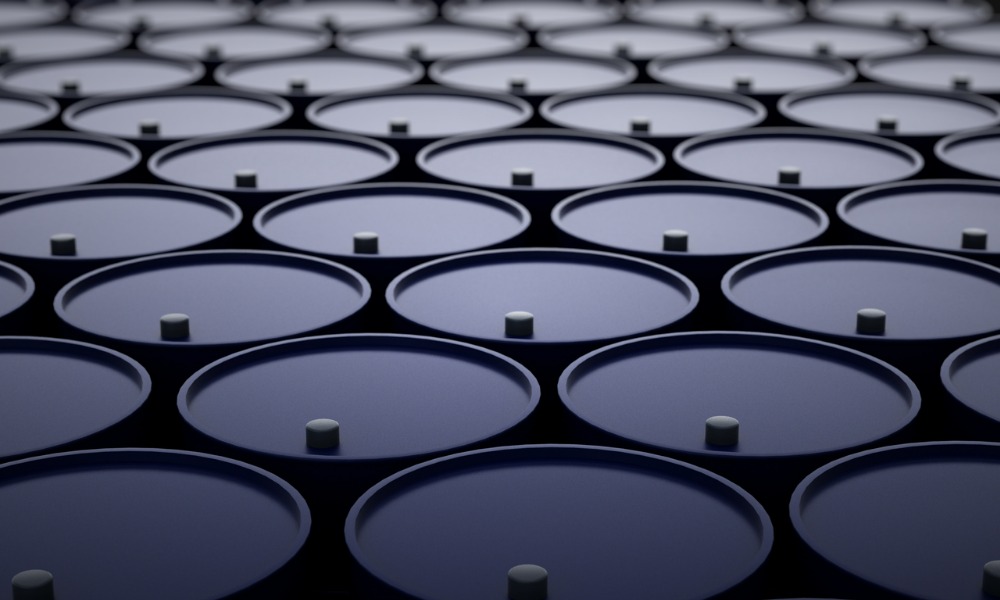Trump's 25% tariff threat spurs Canada’s oil industry to push for market diversification and solutions

Five of Canada’s largest energy-focused industry associations have formed a joint working group to address the potential trade war with the United States, following threats from Donald Trump to impose a 25 percent tariff on all Canadian goods.
The Canadian Association of Petroleum Producers (CAPP), Pathways Alliance, Enserva, the Explorers and Producers Association of Canada (EPAC), and the Canadian Association of Energy Contractors (CAOEC) announced the initiative on Monday, as reported by Financial Post.
CAPP President Lisa Baiton criticized Canada’s preparedness for major trade negotiations with Trump, stating, “Canada is not where it should be in its preparations for a major trade negotiation with somebody like President Trump.”
Baiton noted that, in the absence of formal industry tables to shape the government's strategy, the working group had been established to provide a unified approach.
The Canadian oil and gas sector, which accounts for around 25 percent of the country’s exports, is particularly vulnerable to energy exports being weaponized in a potential trade war.
Foreign Affairs Minister Mélanie Joly stated on CTV’s Question Period that “everything is on the table,” including export taxes on oil, potash, and uranium, should the US implement blanket tariffs on Canadian goods.
Baiton warned that retaliatory measures, such as export taxes on Canadian crude, could exacerbate the negative effects of US tariffs.
“A countermeasure like that would simply mimic and amplify the negative effects of US import tax. To put it another way: it’s a double tariff,” she said.
This could weaken Canadian energy prices, reduce investment and production, and increase unemployment and consumer costs.
Baiton highlighted Canada’s dependence on the US as its primary energy customer, urging diversification.
“We’re in the situation we’re in because we remain locked into one single customer who is now motivated and willing to leverage that position against Canada,” she said.
She called for infrastructure investments, such as pipelines and LNG export facilities, to access global markets without relying on the US.
The working group, representing more than 75 percent of Canada’s oil and gas production, aims to support federal and provincial policymakers with strategies to mitigate the impact of tariffs.
It also plans to engage with US industry counterparts and influential stakeholders to address the issue collaboratively.
Pathways Alliance President Kendall Dilling emphasized the long-standing trade relationship between Canada and the US, noting Canada’s significant role in supplying over half of US petroleum imports in 2023.
“Canada’s oilsands are a cornerstone of North American energy security, and tariffs will only hurt everyday people on both sides of the border,” Dilling said.
Many US refineries, especially in the Midwest, rely heavily on Canadian heavy crude oil, with limited alternative supply sources.
Experts suggest that a sudden increase in Canadian oil costs would negatively affect refining margins, potentially leading to higher gasoline, diesel, and jet fuel prices in the US.
Weekly US imports of Canadian crude oil reached record highs in early January, according to data from the US Energy Information Administration.
Despite the deep integration of North American energy systems, some experts previously speculated that Canadian oil and gas might be exempt from Trump’s tariffs.
Alberta Premier Danielle Smith, following informal meetings with Trump at Mar-a-Lago, warned that Canada should prepare for tariffs.
“This situation doesn’t appear to have resolved itself, despite some good efforts from some governments,” said EPAC President Tristan Goodman.
Goodman acknowledged Smith’s efforts to engage directly with Trump but stressed the urgency of addressing the threat as the inauguration day approaches.



